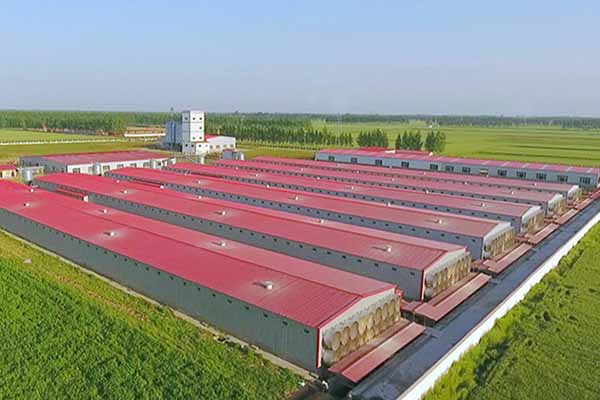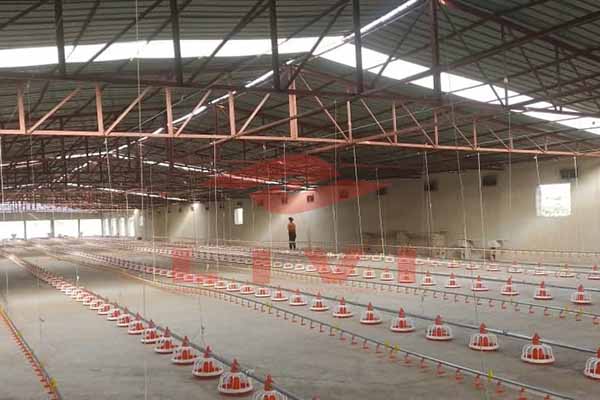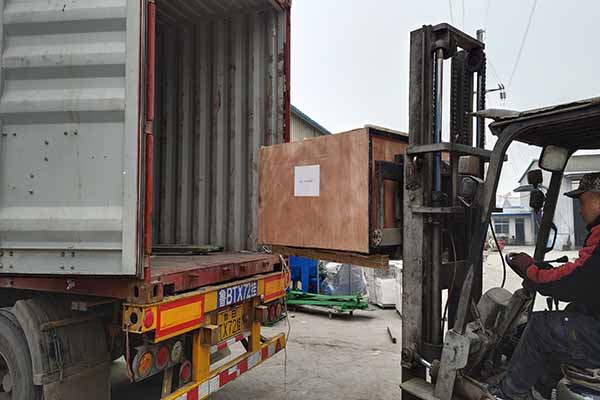How to Extend the Service Life of Uganda Chicken Farming Equipment
Time : 2025-07-01
Chicken farming has become a vital industry in Uganda, providing employment, income, and a stable source of protein for the country’s growing population. To ensure the sustainability and profitability of this industry, it is crucial to maintain the longevity of the farming equipment. This article delves into the best practices and professional insights on how to extend the service life of Uganda chicken farming equipment.
Understanding Chicken Farming Equipment
Chicken farming equipment ranges from feeders and drinkers to incubators and ventilation systems. Each piece of equipment plays a vital role in the success of the farm. To prolong the life of this equipment, it is essential to understand its function, proper usage, and maintenance requirements.
1. Feeders and Drinkers
Feeders and drinkers are the most frequently used pieces of equipment in a chicken farm. They ensure that the birds have access to food and water at all times. To extend their service life:
- Regularly clean and sanitize feeders and drinkers to prevent the growth of bacteria and mold.
- Inspect for any signs of damage or wear and replace parts as needed.
- Adjust the height of feeders and drinkers to ensure they are easily accessible for the birds.
- Use high-quality materials for feeders and drinkers to minimize rust and corrosion.
2. Incubators
Incubators are crucial for hatching healthy chicks. To maintain their performance and extend their service life:
- Follow the manufacturer’s guidelines for temperature and humidity settings.
- Regularly clean and sanitize incubators to prevent the spread of disease.
- Inspect electrical components for signs of wear and tear, and replace as necessary.
- Keep incubators in a dry, well-ventilated area to prevent moisture damage.
3. Ventilation Systems
Proper ventilation is essential for maintaining the health and comfort of the chickens. To extend the service life of ventilation systems:
- Regularly inspect fans and vents for signs of damage or wear.
- Clean filters and ducts to ensure efficient airflow.
- Check electrical components for any signs of wear and tear.
- Replace worn-out parts promptly to prevent further damage.
Regular Maintenance
Regular maintenance is key to extending the service life of chicken farming equipment. Here are some essential maintenance tasks:

1. Cleaning and Sanitizing
Cleaning and sanitizing equipment after each use can prevent the buildup of bacteria, mold, and other contaminants. This practice is especially important for feeders, drinkers, and incubators.
2. Lubrication
Lubricating moving parts can reduce friction and wear, thereby extending the life of the equipment. Regularly inspect equipment for dry or worn-out lubrication points and apply appropriate lubricants.

3. Inspection and Replacement
Regular inspections can help identify potential issues before they become significant problems. Inspect equipment for signs of damage, we ar, or corrosion, and replace parts as needed.
ar, or corrosion, and replace parts as needed.
Training and Education
Proper training and education for farm workers are crucial for the effective operation and maintenance of chicken farming equipment. Workers should be familiar with the following:
- Correct operation of the equipment.
- Proper cleaning and sanitizing techniques.
- Identifying and reporting equipment issues.
- Basic maintenance tasks.
Conclusion
Extending the service life of Uganda chicken farming equipment is essential for the sustainability and profitability of the industry. By following the best practices and professional insights outlined in this article, chicken farmers can ensure that their equipment remains in optimal condition for years to come.











